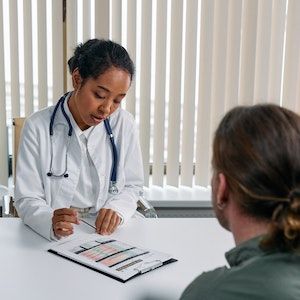Artificial Intelligence Helps Detect Adenoma Regardless of Time of Colonoscopy
The results show the ADR in the early session of the unassisted group was significantly higher compared to those in the late session.

While it is well known that the time of day of a colonoscopy can impact adenoma detection rate (ADR), an artificial intelligence (AI) platform can help reduce some of these discrepancies.1
A team, led by Zihua Lu, MD, Department of Gastroenterology, Renmin Hospital of Wuhan University, validated whether the assistance of an AII system could overcome time-related declines in adenoma detection rate (ADR) during colonoscopies.
Time of day has been linked to a decline in adenoma detection for individuals undergoing colonoscopies.
“Artificial intelligence systems are effective in improving the adenoma detection rate (ADR), but the performance of AI during different times of the day remains unknown,” the authors wrote.
In the cohort study, the investigators analyzed data from 2 prospective randomized controlled trials from the Renmin Hospital of Wuhan University of consecutive patients undergoing colonoscopies.
Each participant was randomly assigned to either the AI-assisted group or unassisted group between June 18, 2019, to September 6, 2019, and July 1, 2020, to October 15, 2020.
The team compared the ADR of early and late colonoscopy sessions per half day before and after the intervention of the AI system.
The investigators sought main outcomes of adenoma detection rate.
There were 1780 patients included in the study, with a mean age of 48.61 years. Of this group, 58.48% (n = 1041) of procedures were performed in the early sessions, with 357 randomized into the unassisted group (34.29%) and 684 into the AI group (65.71%).
The remaining 41.52% (n = 739) of procedures were performed in the late session, with 263 randomized into the unassisted group (35.59%) and 476 into the AI group (64.41%).
The results show the ADR in the early session of the unassisted group was significantly higher compared to those in the late session (13.73% vs 5.70%; P = .005; odds ratio [OR], 2.42; 95% confidence interval [CI], 1.31-4.47).
However, after the investigators implemented the AI system, there was no statistically significant difference between the time of session (22.95% vs 22.06%, P = .78; OR, 0.96; 95% CI; 0.71-1.29) and the AI systems resulted in better assistance ability on ADR in late sessions compared to early sessions (OR, 3.81; 95% CI, 2.10-6.91 vs 1.60; 95% CI, 1.10-2.34).
“In this cohort study, AI systems showed higher assistance ability in late sessions per half day, which suggests the potential to maintain high quality and homogeneity of colonoscopies and further improve endoscopist performance in large screening programs and centers with high workloads,” the authors wrote.
References:
Lu Z, Zhang L, Yao L, et al. Assessment of the Role of Artificial Intelligence in the Association Between Time of Day and Colonoscopy Quality. JAMA Netw Open. 2023;6(1):e2253840. doi:10.1001/jamanetworkopen.2022.53840